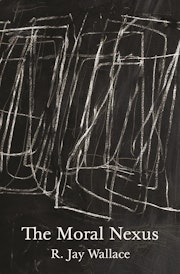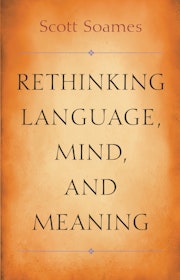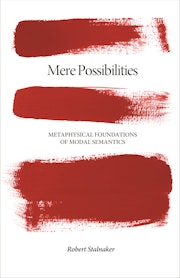Carl G. Hempel Lecture Series7
The Carl G. Hempel Lectures—named in honor of Princeton philosopher Carl Hempel, a leading figure in twentieth-century philosophy—are given annually at Princeton University by the leading figures in the field.
-

A new way of understanding the essence of moral obligation
-

An incisive and sympathetic examination of the case for ending the practice of imprisonment
-

In this book, Scott Soames argues that the revolution in the study of language and mind that has taken place since the late nineteenth century must be rethought. The central insight in the reigning tradition is that propositions are...
-

To understand one another as individuals and to fulfill the moral duties that require such understanding, we must communicate with each other. We must also maintain protected channels that render reliable communication possible, a...
-

Aboutness has been studied from any number of angles. Brentano made it the defining feature of the mental. Phenomenologists try to pin down the aboutness-features of particular mental states. Materialists sometimes claim to have...
-

It seems reasonable to believe that there might have existed things other than those that in fact exist, or have existed. But how should we understand such claims? Standard semantic theories exploit the Leibnizian metaphor of a set of...
-

Why supernatural beliefs are at odds with a true understanding of the afterlife